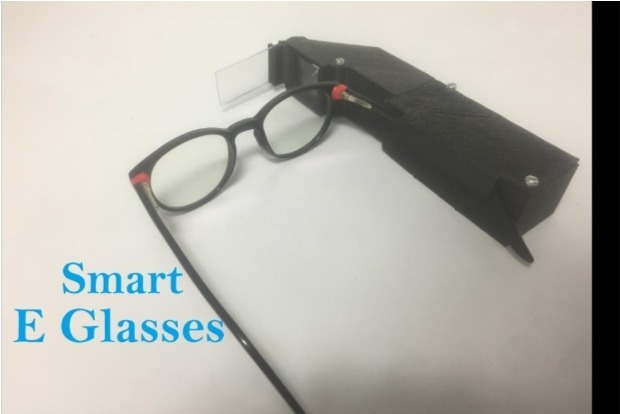Keep An EyeE Out: Race for putting smart glasses back on track
For years, Silicon Valley has chased a vision similar to that of a William Gibson novel, where sensors and cameras are woven into the everyday lives and clothes of billions of people.

New York
Yet the tech companies that have pursued these ideas have often failed to achieve them, as people have shunned wearable computers especially on their faces. Remember Google Glass, the smart glasses that the Google co-founder Sergey Brin introduced while jumping out of an airplane? That project foundered, with bars in San Francisco at one point barring Glass-wearers also pejoratively known as “Glassholes” from entry. Later came Snap’s Spectacles, smart glasses that focused more on fashion and the novelty of recording 10-second video clips. That product, too, never really broke through.
Now Facebook is aiming to usher in an era when people grow more comfortable sharing their lives digitally, beginning with what is in front of their faces. “We asked ourselves, how do we build a product that helps people actually be in the moment they’re in?” Andrew Bosworth, head of Facebook Reality Labs, said in an interview. “Isn’t that better than having to take out your phone and hold it in front of your face every time you want to capture a moment?” Bosworth rejected claims that Facebook was picking up where others had left off. “This product has not been tried before because we’ve never had a design like this before,” he said, adding that Facebook and Ray-Ban were focused more on the fashion of eyewear than the tech inside the frames.
“Eyewear is a very specific category that changes the way you look,” said Rocco Basilico, chief wearables officer at Luxottica, which owns Ray-Ban and wants to expand into the wearables market. “We started this product from the design and we refused to compromise on that design.” Let’s be real for a second. The new glasses, which start at $299 and come in more than 20 styles, face hurdles apart from Silicon Valley’s stop-start history with smart glasses. Facebook has long been under scrutiny for how it treats people’s personal data. Using the glasses to surreptitiously film people is bound to cause concerns, not to mention what Facebook might do with the videos that people collect. I asked if Facebook’s brand baggage was why its name wasn’t in the title of the glasses. The company said that wasn’t the case. “Facebook is not naïve to the fact that other smart glasses have failed in the past,” said Jeremy Greenberg, policy counsel for the Future of Privacy Forum, a privacy non-profit that is partly financed by Facebook. But, he added, “the public’s expectations of privacy have changed since the days of previous smart glasses releases.”To pre-empt privacy concerns, a small indicator light flickers on when the glasses are recording, notifying people that they are being photographed or filmed. As you set up the Facebook View app, it also displays prompts asking users to “respect others around you” and asking whether it “feels appropriate” to take a photograph or video in the moment. The app even invites people to “do a little demo” to show others that they are being recorded.
Many of these privacy concerns are beside the point for technologists who see wearables as inexorable for society. For Mark Zuckerberg, Facebook’s chief executive, the ultimate goal is to eventually release a pair of smart glasses that fully augment reality, which puts a kind of virtual overlay onto the world in front of people.
That idea is yet another step on the road to the metaverse, Zuckerberg’s term for how parts of the virtual and actual world will eventually meld together and share different parts of each other. Perhaps one day I might use a pair of Facebook AR glasses to order a digital hat for myself, which other people who are wearing AR glasses might be able to see.
Isaac is a journalist with NYT©2021
The New York Times
Visit news.dtnext.in to explore our interactive epaper!
Download the DT Next app for more exciting features!
Click here for iOS
Click here for Android



